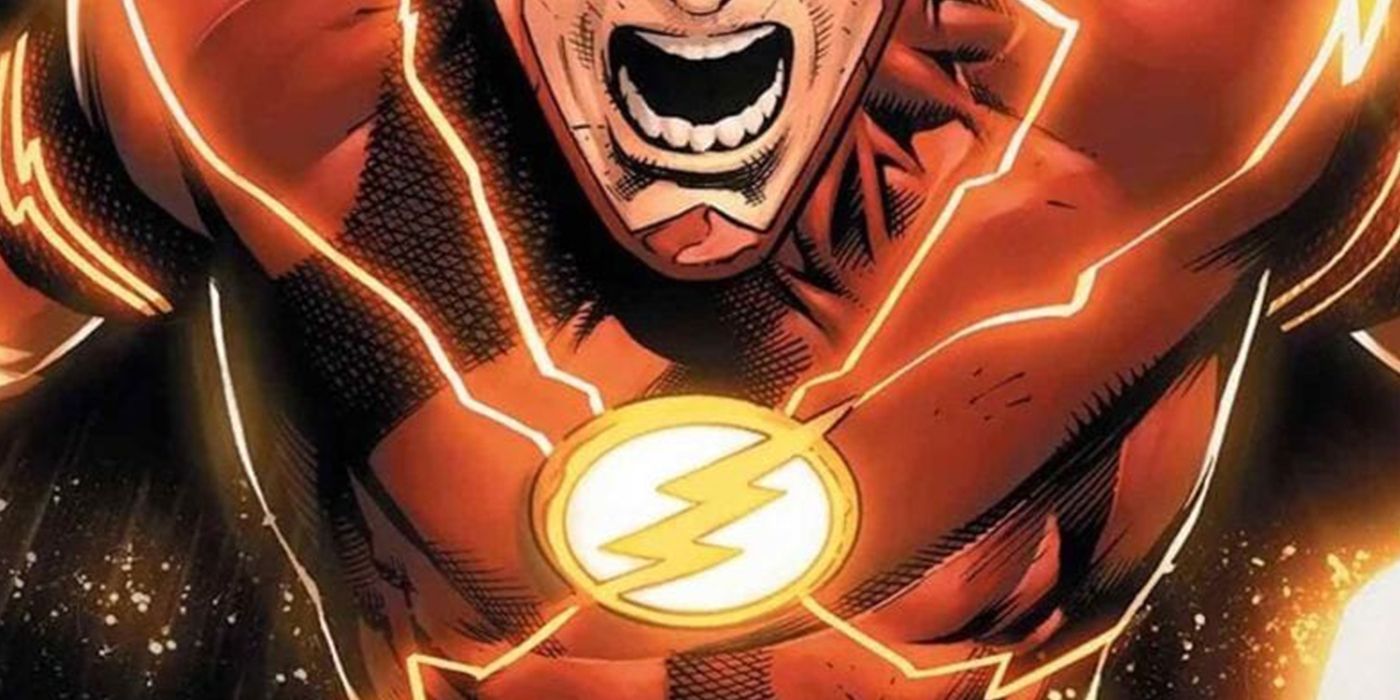
The Flash, perhaps the greatest and fastest speedster superhero in all of comics, can tear himself apart if he runs too fast for too long. Just such an occurrence happened in Crisis On Infinite Earths, the first major DC crossover event, that included literally hundreds of superheroes in a fight to save the multiverse from annihilation. The event was memorable for many reasons, but Flash fans won't soon forget a gruesome yet noble sequence towards the end of Crisis on Infinite Earths Vol. 1 #8, written by Marv Wolfman with art by George Perez and colors by Anthony Tollin.
In Crisis on Infinite Earths, a being known as the Monitor threatens the entire multiverse's very existence. Only five positive-matter universes remain, and the Monitor desires to use an antimatter cannon stationed on the planet Qward to annihilate all of them in one blow. Suddenly, the Monitor's guards begin to turn on him - this is the doing of the Flash (Barry Allen). He's been showing the Pycho-Pirate's face to all of them at super-speed, and the Pirate (who can manipulate the emotions of those who look into his eyes) has coerced them into attacking the Monitor. With the Monitor successfully distracted, Barry tosses the Psycho-Pirate aside and makes his way to the cannon. There's only one way the Flash can stop it from firing... and Barry knows the price he'll have to pay for his plan to work.
The Flash begins running against the flow of antimatter, turning the energy back in on itself to destroy the cannon. His proximity to the cannon is making him weaker - but that only drives him to run faster, faster than he's ever run before, even as he feels himself weakening. "Funny how your mind wanders when... when you're so close to death, you can smell it coming. Mom and Dad... you can't hear me, but I love you so much." He remembers Iris, Fiona, Wally West, and everyone else in his life as he accelerates even faster. He moves so fast he starts to travel back in time and see images from his past. Finally, Barry's physical body loses all cohesion and disintegrates into nothingness, leaving behind only his suit and his ring. Billions of lives are saved...but the Flash is dead.

The noble sacrifice of the Flash was an uncommon end among superheroes, as this was intended as a permanent death of the character. Wally West would later take up the Flash moniker. Far from being a simple replacement, West became a popular character in his own right, so much so that the Justice League animated series in 2001 filled out their roster with Wally instead of Barry. He even had a similar moment to Barry's sacrifice in the episode "Divided We Fall," in which he ran so fast, he was nearly pulled into the Speed Force and killed himself.
Though Barry Allen was eventually brought back in Final Crisis #2 in 2008, his death was one of the longest-lasting for a mainline hero. The stunning art by legendary illustrator George Perez showcased Flash surrounded by dazzling red and yellow light as he sacrificed himself for billions. The end of the issue even acted as a eulogy of sorts, with a quote from Scottish poet William Knox: "Oh, why should the spirit of mortal be proud? Like a fast-flittering meteor, a fast-flying cloud/ a flash of the lightning, a break of the wave/ He passes from life to his rest in his grave." A simple caption closed out the issue: "The Flash: 1956-1985"
from ScreenRant - Feed https://ift.tt/3tQ3qY7

0 Comments